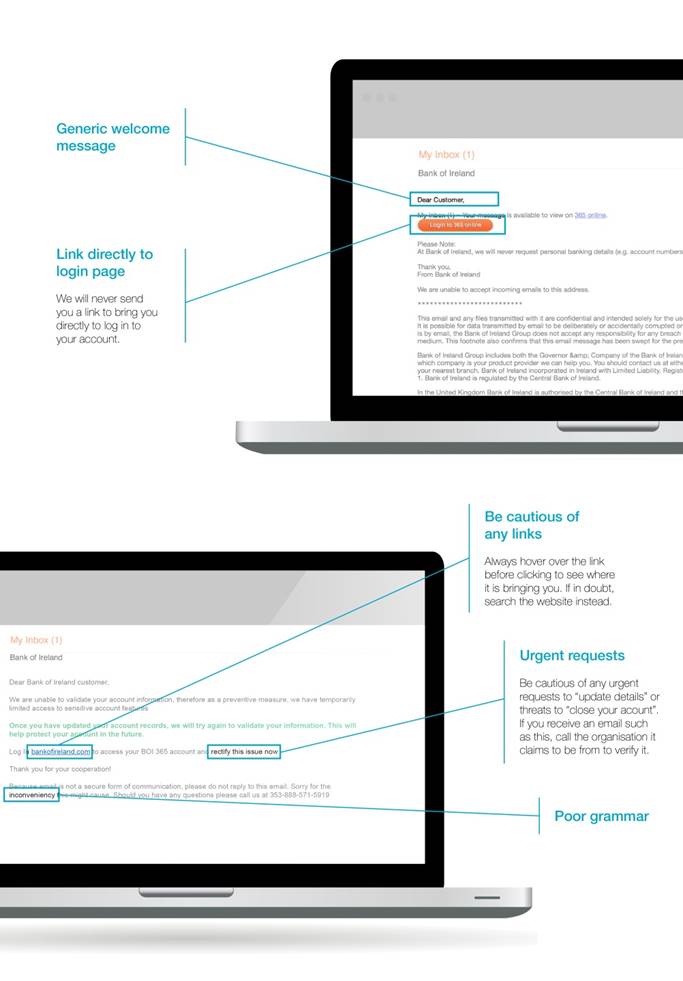Fraudsters sometimes send emails pretending to be from your bank, credit card company or another company you trust, usually asking you to click on a link or open an attachment. The emails may seem genuine and convincing but are designed to trick you into sharing your personal information, such as your username, full PIN or credit card number. They will often make urgent threats and try to scare you into providing your details.
- Check for misspellings or unfamiliar sender addresses
- Unexpected emails which claim to come from a financial institution
- Urgent requests and threats
- Claims that your account has been compromised
- Requests to “Open an Attachment” or “Click a Link”
